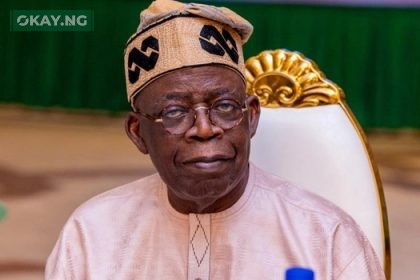In a significant stride towards diversifying its economy and capitalizing on the burgeoning global demand for critical minerals, the Federal government has announced the sealing of investment deals worth $1.3 billion for the establishment of two lithium processing factories in Nigeria. These ambitious projects are slated to become operational before the end of the second quarter of 2025, a development heralded as a strong indicator of renewed investor confidence in Africa’s largest oil producer.
The Minister of Solid Minerals Development, Dele Alake, revealed this landmark achievement, attributing it to the positive impact of ongoing monetary and fiscal reforms implemented by the government. He stated that the African Finance Corporation (AFC) and the Solid Minerals Development Fund (MDF) are at the forefront of spearheading these pivotal investments.
Lithium, a crucial element in the production of batteries for electric vehicles and energy storage systems, as well as in the manufacturing of glass and aluminum products, positions Nigeria to become a significant player in the global clean energy supply chain. Currently, Australia and Chile dominate the world’s lithium production.
According to Minister Alake, these lithium factories in Nigeria are projected to inject approximately $1.2 billion into Nigeria’s economy annually and contribute over $25 billion throughout their lifecycle. Furthermore, the ventures are expected to generate a substantial $8 billion in foreign exchange earnings.
“This investment is an endorsement of our ministry’s ongoing reforms and the SNDF and the AFC goals of catalysing private sector-led investments in the solid minerals sector,” Alake affirmed.
This development aligns with a broader vision to revitalize Nigeria’s long-neglected solid minerals sector. Alake expressed concern over the historical underinvestment in this crucial area, highlighting a stark contrast with smaller African nations. He pointed out that at the inception of the current administration, Nigeria’s mineral exploration budget stood at a mere $2 million, dwarfed by the investments of countries like Côte d’Ivoire ($148 million), Senegal ($48 million), and Sierra Leone ($14 million).
“For decades, we ignored this very vital sector of the economy,” Alake lamented, attributing the oversight to Nigeria’s prolonged reliance on oil revenues. “We shut our eyes to the constructive sectors of the economy… and we went into a consumption spree because the dollar was coming in. And we were importing everything, including toothpicks and orange juice.”
However, the tide appears to be turning. The Minister highlighted the tangible results of his ministry’s efforts, including the creation of approximately 27,000 jobs for artisanal miners across over 90 mine sites previously freed by mining marshals. He also noted that Nigeria’s Community Development Agreement (CDA) framework has garnered international recognition, with countries like South Africa now looking to replicate this model designed to benefit host communities.
Nonye Ayeni, CEO of the Nigerian Export Promotion Council (NEPC), echoed the optimistic sentiment, calling for a strategic transformation of the solid minerals sector to fully unlock its export potential. She announced the establishment of a dedicated Solid Minerals Department within the NEPC to drive value addition, export incentives, and the creation of mineral clusters for resources like lithium, lead, zinc, gemstone, kaolin, and tantalite – all in high global demand.
While acknowledging existing challenges such as infrastructure deficits and regulatory hurdles, Ayeni emphasized the alignment of strategies with priority minerals boasting strong global market potential.
Janet Adeyemi, national president of the Women Miners Association of Nigeria (WMIN), underscored the critical need for stringent enforcement of mining regulations and the mandatory submission of Environmental Impact Assessments (EIAs) to protect host communities from environmental degradation. She also advocated for the adoption of Environmental, Social, and Governance (ESG) reporting and a framework similar to the U.S. Water Infrastructure Act.
“The only sustainable solution is the consistent enforcement of regulations and public education on the harmful impacts of illegal mining,” Adeyemi asserted. “Investors are now more interested in countries with robust legal frameworks and environmental safeguards.”
Further reinforcing this positive trajectory, the latest NESG-Stanbic IBTC Business Confidence Monitor (BCM) for April 2025 indicates a third consecutive month of rising business confidence in Nigeria, buoyed by the ongoing federal government reforms. The BCM’s Business Performance Index for March 2025 stands at a promising +6.58, suggesting a strengthening economic outlook and validating the government’s efforts to attract foreign investment and diversify the nation’s economic base.













